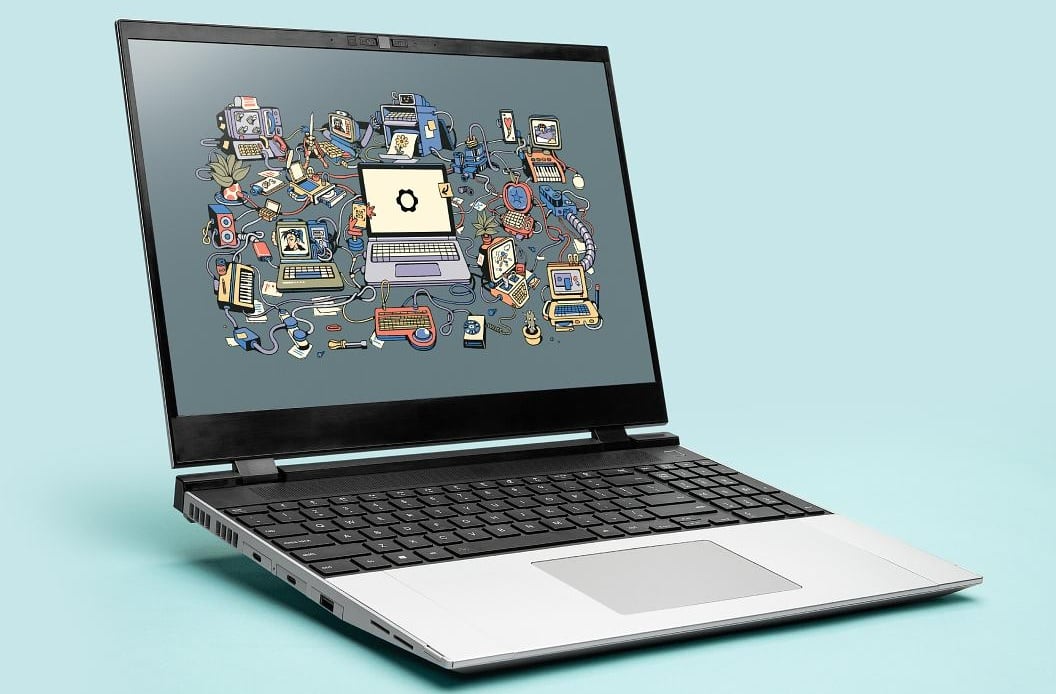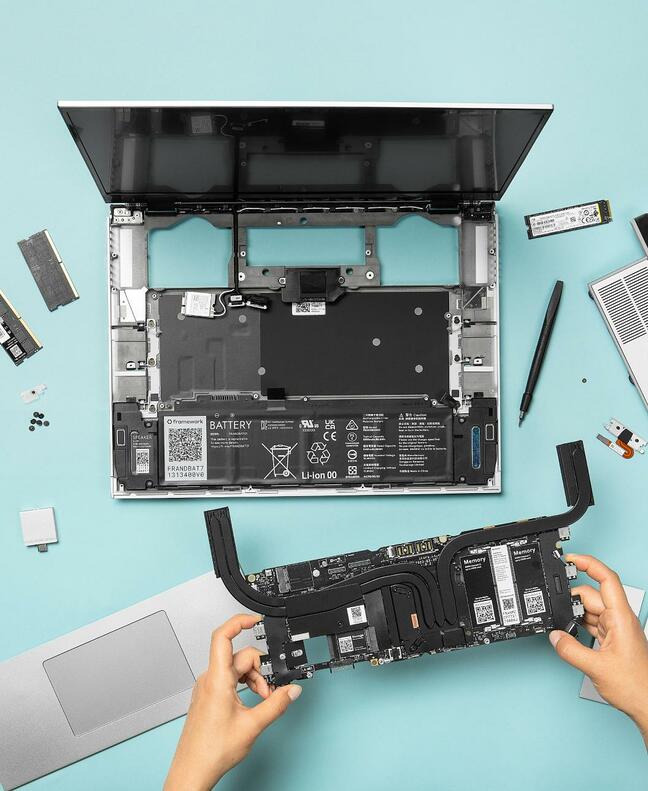Framework Starts Taking Orders For 16-inch Repairable, Upgradeable Laptop

You can now order the new 16-inch model of the Framework user-repairable – and user-upgradeable – laptop.
Framework Computer continues to confound expectations by the tactic – quite unusual in this industry – of actually delivering on its promises. The company was founded as recently as the start of 2020 by Niruv Patel, the former head of hardware at Oculus before it was inexplicably and unsuccessfully swallowed by Facebook. Framework started shipping its first model to customers about 18 months later.
We have written about the company and its laptops a couple of times before on The Reg. In May last year, it launched faster 12th generation Intel variants of its original 13-inch machine. Then, earlier this year, it launched additional go-faster parts, including AMD variants, as well as announcing a new, larger laptop with a 16-inch display. It's this new model that it's now started accepting online orders for, and The Verge has a slightly breathless hands-on with a prototype.
We would like to be all snarky and cynical about the new gadget, but in conscience, we can't: it genuinely does sound pretty good. While the original 13-inch model has four expansion ports, into which you can slide tiny adapter modules that can turn the recessed USB-C ports into Ethernet, HDMI, USB-A, or a variety of other connectors, the new machine has a total of six of these. It's added two more sockets at the rear, powered by USB-4 for additional bandwidth.
Customers can choose between a "tenkeyless" keyboard and a centered trackpad, or ones offset to one side to make space for a full numeric keypad. There are other variants too. The upper fascia of the machine is modular so you can rearrange this more or less how you wish. So if you want the trackpad on one side – like the Asus ZenBook Pro Duo has, for example – then you can have that. Or you can put it on the left, as the sinister Reg FOSS desk would prefer.
- Fresh models of Framework modular laptops in the works
- Repairability champ Framework's modular laptop gets a speed boost
- Logitech, iFixit to offer parts to stop folks binning their computer mouse
- Europe's right-to-repair law asks hardware makers for fixes for up to 10 years
As an optional extra, the machine can also handle clip-on modules which fit behind the screen hinge. Initially, the company plans to offer two of these: one houses bays for two SSDs, while the other can hold an external GPU card. (Beware: the new expansion slot does mean that the motherboards for the 16-inch model are not interchangeable with the older, smaller motherboards, though.) It won't be a gamer's powerhouse of a machine, but it should offer considerable extra GPU grunt for those who need that sort of thing. There is also provision for clip-on battery modules, which will fit partly underneath the machine… and which could alleviate the extra power draw of a discrete GPU.
The hardware is actually being made by Taiwanese ODM Compal, which has been around for decades. Back in 2001, we reported that it was making laptops for Dell, and 12 years ago it was building a factory with Lenovo.
While these are not budget laptops, they offer both more expansion and far better repairability and upgradability for less money than high-end kit such as the Lenovo X1 Carbon. That the rest of the laptop industry should notice that customers really want machines they can repair and upgrade, and start to bring this to bigger brands – 'tis a consummation devoutly to be wished.
The company has just this week started accepting orders for the new model, and while we are generally cagey about endorsing pre-release hardware, in its brief couple of years Framework Computer has delivered several successive generations of upgrades for its existing smaller model.
Existing owners are generally delighted with the machines, and it received an unbeatable 10/10 score from iFixit. The auspices are encouraging. We just hope somebody finds a way to squeeze a thin but clicky keyboard into the thing. ®
From Chip War To Cloud War: The Next Frontier In Global Tech Competition
The global chip war, characterized by intense competition among nations and corporations for supremacy in semiconductor ... Read more
The High Stakes Of Tech Regulation: Security Risks And Market Dynamics
The influence of tech giants in the global economy continues to grow, raising crucial questions about how to balance sec... Read more
The Tyranny Of Instagram Interiors: Why It's Time To Break Free From Algorithm-Driven Aesthetics
Instagram has become a dominant force in shaping interior design trends, offering a seemingly endless stream of inspirat... Read more
The Data Crunch In AI: Strategies For Sustainability
Exploring solutions to the imminent exhaustion of internet data for AI training.As the artificial intelligence (AI) indu... Read more
Google Abandons Four-Year Effort To Remove Cookies From Chrome Browser
After four years of dedicated effort, Google has decided to abandon its plan to remove third-party cookies from its Chro... Read more
LinkedIn Embraces AI And Gamification To Drive User Engagement And Revenue
In an effort to tackle slowing revenue growth and enhance user engagement, LinkedIn is turning to artificial intelligenc... Read more


